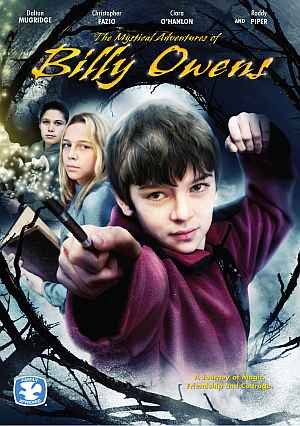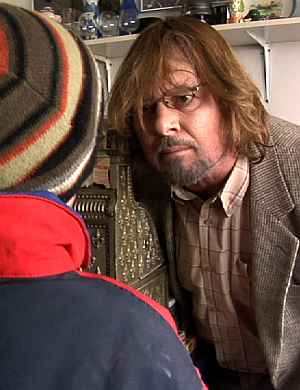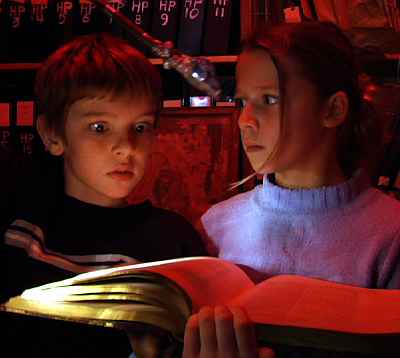Torchwood: Children of Earth
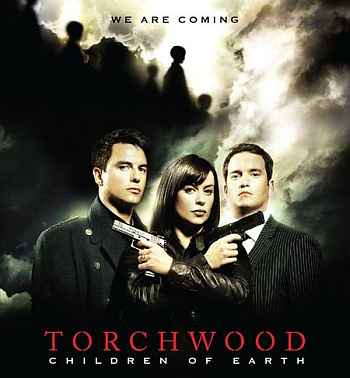
And Doctor Who did begat Torchwood…and between those two and Primeval, Saturday nights on BBC America were pretty well packed, and verily, did we praise Tivo to the heavens. While we started somewhere in the middle of the fourth season of Who – leading to a fair amount of “Well, that would probably make sense if we’d seen all the previous series” – we were lucky enough to begin Torchwood at the beginning, which certainly helped. Two series of tracking the near-immortal Captain Jack Harkness (John Barrowman) and his team followed, as they battled aliens and alien technology from their secret base, the “hub”, in the center of Cardiff [which is basically the UK version of Buffy‘s Hellmouth, where all the weird shit happens. Makes sense to me].
It took a little while for the series to find its feet and become its own master, but it got there, and in time for the five-night event which was Children of Earth, with only a couple of weeks between its broadcast in the UK and here in Arizona. Quite long enough, unfortunately, for Twitter spoilers to provide more information than I would rather have had, but such is media life in the 21st century. It’s hard to imagine anything like, say, The Sixth Sense, being so successful today – by mid-Saturday afternoon, the twist would be all over everyone’s Facebook wall. Well, those who have a Facebook, which still excludes me, I am pleased to report. If you want to ‘friend’ me, you need to do it to my face, dammit.
Anyway. Children of Earth starts with every child in the world simultaneously stopping, repeating “We are coming” for a couple of minutes, then resuming as if nothing had happened. Needless to say, this freaks out the adults, and things get worse as the incident repeats – adding first the word “back”, then “tomorrow” to the message. The Torchwood team swing into action, but it turns out that the British government know more about this than they are prepared to let on, and Torchwood’s offer of help is rudely rebuffed. And that’s “rudely” as in “we’re going to implant a bomb inside Capt. Jack, and let him blow up the hub, then terminate with extreme prejudice any survivors.” Terribly un-British, actually.
The government have received instructions from “the 456” – an entity? a group? an alien race? – on the construction of an apparatus, and are building it on the thirteenth floor of a Whitehall building. There’s also a single adult who is affected, and appears to be a survivor of a mass abduction of some kind that happened forty years ago. So, what the heck is going on? What do the 456 want? Why are Torchwood – the people best equpped to handle the crisis – apparently now targeted for execution? It makes for an effective combination of 24 and The X-Files, combining the running around and political shenanigans of the former, with the extra-terrestrial/supernatural aspects of the latter.
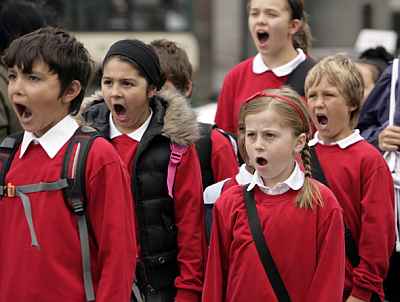
Holding it all together is Harkness, a man for whom the phrase, “You cannot stop Captain Jack, you can only hope to contain him,” appears to have been designed. He cannot be killed, due to an incident in a previous Doctor Who episode, which left him “a fixed point in time and space.” This kind of thing could be lethal to any tension – when death loses its sting, where’s the threat? – yet, the writers still found ways to imperil Jack, as noted above. Returning from that was an impressive feat, with our hero at one point looking more like skinless Frank out of Hellraiser. His immortality is also in contrast to the very real mortality of his team – half of which didn’t make it out of the second series and here… Well, let’s just say, I wouldn’t sell them any life insurance.
Less successful is the gay relationship between Jack and Ianto (Gareth David-Lloyd). While not a problem in itself (hello – Xena fan!), in the first episode in particular it seemed forced and self-conscious: “Look at us! We’re gay!” As in Xena, when the writing drifts from what makes the show successful – and this is an action/SF show, not a soap opera – it weakens things. While likely inevitable, with both Barrowman and creator Russell T. Davies being cheerfully out of the closet. I tend to think that when you make entertainment for the public at large, it’s self-indulgent to put your own sexual preference, shared by perhaps 5% of the population, to the forefront. It’s notable that the series episodes not written by Davies are less inclined to take this approach.
It didn’t help that Ianto came over as, in many ways, irritating and clingy – quite the opposite of the kind of person, male or female, with whom you’d expect Jack to take up. Say what you like about the ambivalent Capt. James Hart – and Barrowman sucking face with Spike from Buffy was certainly one of the more memorable images of recent genre TV – you could see the attraction. Ianto basically makes the tea for Torchwood. It’s another echo of Xena, where the relationship between the heroine and Gabrielle was fundamentally wrong – not because the characters were the same sex, but purely because Gabrielle was a whiny little bitch. Ianto also stretched our credulity to the limit, when he somehow outruns the British army in a fully-laden bulldozer.
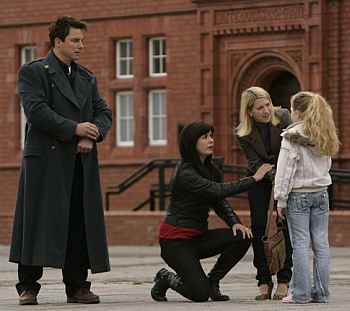
Fortunately, the rest of the script largely makes up for it. In Gwen (Eve Myles), you have perhaps the closest British TV has got to an action heroine since Joanna Lumley in The New Avengers. Flying through the air, gun in each hand…and did I mention she’s pregnant? While not a ‘classical beauty’, you can easily see why her husband is utterly-devoted to her [much as I am to Chris…]. Much credit must also go to Frobisher (Peter Capaldi), a civil servant who finds himself at the center of the storm; the decisions which he makes end up turning him into a victim, in the most bleak way imaginable.
Indeed, the show is particularly chilling in its bureaucratic plausability. When it becomes clear what the 456 want – it’s horrific, both for what they want, and the reasons why they want it – and that there’s no way out of delivering it, what results is the kind of conversation that must have happened in Nazi Germany. How do we get the Jews to the camps? How do we dispose of the bodies? Something unthinkable – not just being discussed, but reduced to its banal practicalities. The 456 may be the villains, but the politicians don’t exactly come out of this smelling like roses.
The deeper a hole a plot digs for its characters, the harder it is to climb out of it – and the hole here was bordering on the Grand Canyon-sized. The machinations required to get out did have an air of deus ex machina in their convenience – not as bad as, say, Independence Day, Signs or War of the Worlds, because there was a price which had to be paid for them, and it was not at all negligible. It may be the end of the series – the team gutted, their headquarters destroyed and their leader…well, he won’t be doing any leading for a bit, let’s just say – but if so, it’s an entirely fitting way to go out.
In the late seventies, I remember watching Quatermass on ITV, and being totally gripped, albeit as a 13-year old kid. Thirty years later, Children of Earth had almost the same impact, an impressive feat after three more decades of cynicism have gone under the bridge. It certainly ranks among the most gripping, effective short series of genre television to come out of Britain in a very long time.
